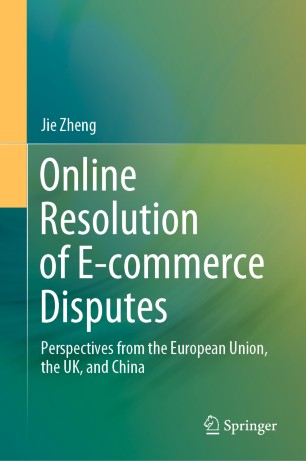

Most ebook files are in PDF format, so you can easily read them using various software such as Foxit Reader or directly on the Google Chrome browser.
Some ebook files are released by publishers in other formats such as .awz, .mobi, .epub, .fb2, etc. You may need to install specific software to read these formats on mobile/PC, such as Calibre.
Please read the tutorial at this link: https://ebookbell.com/faq
We offer FREE conversion to the popular formats you request; however, this may take some time. Therefore, right after payment, please email us, and we will try to provide the service as quickly as possible.
For some exceptional file formats or broken links (if any), please refrain from opening any disputes. Instead, email us first, and we will try to assist within a maximum of 6 hours.
EbookBell Team

5.0
98 reviewsThis book discusses how technological innovations have affected the resolution of disputes arising from electronic commerce in the European Union, UK and China. Online dispute resolution (ODR) is a form of alternative dispute resolution in which information technology is used to establish a process that is more effective and conducive to resolving the specific types of dispute for which it was created.
This book focuses on out-of-court ODR and the resolution of disputes in the field of electronic commerce. It explores the potential of ODR in this specific e-commerce context and investigates whether the current use of ODR is in line with the principles of access to justice and procedural fairness. Moreover, it examines the major concerns surrounding the development of ODR, e.g. the extent to which electronic ADR agreements are recognized by national courts in cross-border e-commerce transactions, how procedural justice is ensured in ODR proceedings, and whether ODR outcomes can be effectively enforced. To this end, the book assesses the current and potential role of ODR in resolving e-commerce disputes, identifies the legal framework for and legal barriers to the development of ODR, and makes recommendations as to the direction in which practice and the current legal framework should evolve.In closing, the book draws on the latest legislation in the field of e-commerce law and dispute resolution in order to make recommendations for future ODR design, such as the EU Platform-to-Business Regulation on Promoting Fairness and Transparency for Business Users of Online Intermediation Services (2019) and the United Nations Convention on International Settlement Agreements Resulting from Mediation (2018), which provide the legal basis for ODR’s future development.